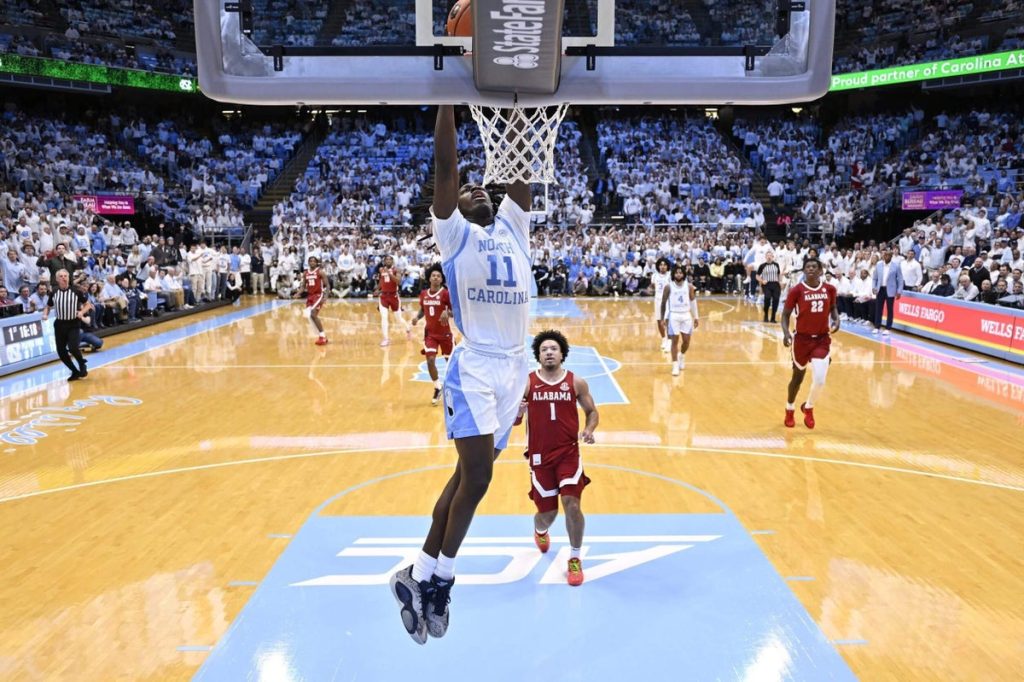For more than two years, the University of North Carolina (UNC) has been quietly investing over $600,000 in legal fees under a mysterious project known internally as the "Carolina Blue matter." This code name, uncovered in documents obtained by The Athletic, refers to UNC’s behind-the-scenes exploration of conference realignment and its future in the Atlantic Coast Conference (ACC). The initiative began in September 2022, a time of significant upheaval in college athletics, and has continued through at least November 2024. During this period, the ACC faced some of its most turbulent challenges, including lawsuits from two of its most prominent members, Clemson and Florida State, who sought to challenge the conference’s restrictive contracts.
The Carolina Blue matter was spearheaded by UNC’s hire of the law firm Skadden, Arps, Slate, Meagher & Flom LLP, which was brought on board to handle "commercial issues involving athletics." While the firm’s initial contract with UNC was vague, subsequent invoices and email exchanges revealed that their work was tied to conference realignment and television rights. Over 25 months, UNC spent more than $500,000 on professional services from Skadden, with an additional $120,000 allocated for court reporting, likely tied to depositions or legal proceedings. Despite the significant financial investment, the documents provided little clarity on the specifics of the Carolina Blue matter. Both Skadden’s attorneys and UNC officials declined to comment on the project, citing attorney-client privilege.
Two senior UNC officials, speaking on the condition of anonymity, confirmed that the Carolina Blue matter was indeed related to UNC’s exploration of realignment options. They described the effort as a form of due diligence, reflecting the university’s cautious yet proactive approach to navigating the rapidly shifting college sports landscape. This period of exploration coincided with major developments in conference realignment, including the ACC’s internal conflicts and the escalating legal battles between Clemson, Florida State, and the conference itself. In early 2024, the UNC System temporarily stripped its Board of Trustees of some athletics-related powers, citing concerns over independent actions by board members that could undermine the university’sadministration.
Email exchanges obtained by The Athletic provide additional insight into UNC’s mindset during this time. In April 2024, John Preyer, chairman of UNC’s Board of Trustees, exchanged emails with former trustee Chuck Duckett about the university’s financial and reputational priorities. Duckett emphasized the need for UNC to "work together" to protect its interests, advocating for improved financial transparency within the ACC rather than an adversarial approach. Preyer, however, took a more assertive stance, writing that UNC must "explore every available avenue to depart a conference that is in financial decline." He argued that the ACC, once a dominant force in college athletics, had become increasingly focused on supporting its less competitive members, leaving schools like UNC at a disadvantage. Preyer also cautioned against publicly speculating about the potential $600-700 million exit fee from the ACC, warning that such rhetoric could harm UNC’s negotiating position.
UNC’s exploration of realignment options is deeply tied to its identity as one of the nation’s premier public universities. With a storied athletics program—highlighted by its six-time national champion men’s basketball team and the recent hire of legendary football coach Bill Belichick—UNC is a highly attractive candidate for any conference. Geographically, the school could potentially align with either the Big Ten or the Southeastern Conference (SEC), the two most powerful leagues in college sports. As Duckett noted in an email, "We have a landing spot if things blow up," suggesting that UNC is positioned to adapt to whatever future the realignment process may bring.
However, as of now, the realignment drama appears to have reached a temporary stalemate. The ACC’s recent extension of its media rights deal with ESPN through 2036 has stabilized the conference’s financial outlook, at least for the time being. Clemson and Florida State, the two schools that initiated legal challenges against the ACC, face steep exit fees and significant financial risks if they were to leave. The ongoing lawsuits, which have already resulted in seven-figure legal bills for the parties involved, seem unlikely to resolve the underlying issues anytime soon. Instead, the focus has shifted toward renegotiating the ACC’s revenue distribution model, which could address some of the frustrations felt by the conference’s highest-profile programs. As the situation continues to unfold, UNC’s cautious yet strategic approach to realignment ensures that the university is prepared for whatever the future may hold.
